Interviews 2009
Raising Hell
By Allan Bryce, DVD World, No 69, January 2009
"I'm going to get a little metaphysical on you, so forgive me at this point, though I'm not very good at metaphysics in the morning - that
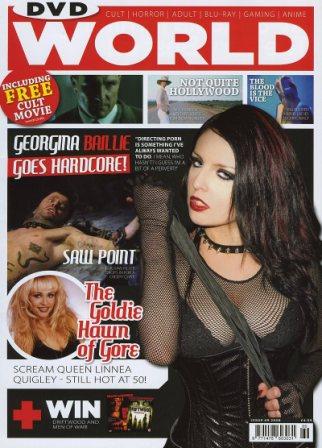 would be a great title for a book, come to think of it! The truth is I feel as if I was put on the planet to tell stories. I don't know who put me there - that's where the metaphysics comes in - and why, but I do know that from the very beginning that was what I was destined to do. I instinctively knew how to construct stories that would make people feel things. When I was a little kiddie, my brother Roy and I shared a room. My brother is many years my junior, and on Saturdays and Sundays when Mum and Dad were in bed they would have a long lie in until about eleven - in retrospect it might have been more than a lie in, but I didn't know that at the time. I would tell stories to Roy and I could scare him and make him cry. It gave me a wonderful sense that by expanding the language in which I was telling my stories I could take him to new places emotionally that he hadn't been before, and that's magical to me to be able to take him to a place where he's actually crying about some invented creature's death. "
would be a great title for a book, come to think of it! The truth is I feel as if I was put on the planet to tell stories. I don't know who put me there - that's where the metaphysics comes in - and why, but I do know that from the very beginning that was what I was destined to do. I instinctively knew how to construct stories that would make people feel things. When I was a little kiddie, my brother Roy and I shared a room. My brother is many years my junior, and on Saturdays and Sundays when Mum and Dad were in bed they would have a long lie in until about eleven - in retrospect it might have been more than a lie in, but I didn't know that at the time. I would tell stories to Roy and I could scare him and make him cry. It gave me a wonderful sense that by expanding the language in which I was telling my stories I could take him to new places emotionally that he hadn't been before, and that's magical to me to be able to take him to a place where he's actually crying about some invented creature's death. "
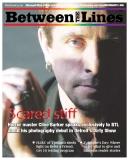
Scared Stiff
By Chris Azzopardi, Between The Lines, Issue 1706, 5 February 2009 (note: full text online at www.pridesource.com)
"I'm not interested in the conventional stuff you can buy in a magazine, I'm trying to find a way to represent men that's - I don't want to say 'arty,' because that's pretentious. I just wanna say that it's gonna catch the eye in a different way, in a way that'll make people look at the body in a different way... It's an artist's job to say, 'Come on, take it. Take the images. Take the intensity of my vision.' I'm not gonna apologize for that."
Barker Praises Laugier, Talks Pinhead Design
By Ryan Rotten, Shock Till You Drop, 13 February 2009 (note: full text online at www.shocktillyoudrop.com)
"The whole point about Pinhead is that he is geometrically severe. Very measured and the energy of the character comes out of the fact that you have surgical precision which is part of a much larger, sadistic, maybe masochistic, design. By turning the bloodless cuts or scarifications into bloody, irregular gashes removes the point of what made the character interesting in the first place."
The Midnight Meat Train Trilogy
By Ryan Rotten, Shock Till You Drop, 13 February 2009 (note: full text online at www.shocktillyoudrop.com)
"It frustrates me because we would have had a trilogy out of this. I set to work to develop, in note form from way back, the back story of the city fathers. The other movies were not just taking place in this city but in other parts of America. They were connecting up the story of underground activity which is America-wide. It would have climaxed with a meeting of all the stations, all of the lines. I had this massive plan in my head. The absence of a theatrical release was... not only were we losing the chance to exhibit the picture the way it should have been shown, but also we were killing the chance of getting a real horror trilogy that would be constructed picture by picture."
Interview
Conference call reported,
(i) by Joseph McCabe as 'Clive Barker On The Next Books Of Blood Movies And Tortured Souls!', FearNet.com, 15 February 2009,
(ii) by Brian Gallagher as 'Clive Barker Speaks Out on Midnight Meat Train', Movieweb.com, 16 February 2009,
(iii) by Heather Wixson as 'Clive Barker on Hell, Meat & More!', Dread Central.com, 17 February 2009,
(iv) by Jason Coleman as 'Clive Barker: Riding Midnight Meat Train', The 213.net, 17 February 2009,
(v) by Staci Layne Wilson as 'Clive Barker Tears Open His Soul About A Hellraiser Remake', Sci-Fi Wire.com, 19 February 2009.
"I think [the Tortured Souls movie]'ll happen probably only when I've got back into the swing of directing. There's a script I like very much. I love the toys. I shouldn't call them 'toys.' What should I call them...? The figures, the sculptures. I think they're beautiful, detailed things. Do I want to see those things walk onto the screen and speak? Damn right I do. So I would like to make sure that happens at some point. But right now we've got a lot of scripts that are already written, and I want to get those out and have people shooting them. But I'm a tenacious son of a bitch, you know - I'm Italian-Irish - and one of these days if it gets done, it gets done. I think what Todd's company did when they created the Tortured Souls stuff was superb, and I think it will be wonderful to see those things breathe and take on life and step onto the screen."
An Exclusive Interview with Clive Barker
By Ryan Rotten, Shock Till You Drop, 16 February 2009 (note: full text online at www.shocktillyoudrop.com)
"I've seen the movie [Dread] and it's still in progress but, God, Anthony DiBlasi's style is as different as Kitamura's is. They're stylists in their own way. But DiBlasi's style is almost documentarian. He's invisible and you feel like a voyeur. The performers are just in the moment, the scene with the girl and the meat is just... I think something very special is coming down the track...
"The actors are not acting, they're being. All I know is he made fuckin' immaculate calls on the casting. Nobody looks movie perfect. There's no prettification, there's a dirty frame to every scene. Nothing's clean. And again, you're the voyeur and I'm bloody impressed."
Barker Update On Hellraiser Remake, Tunnicliffe Pinhead Design Reaction
By Jeff Otto, Bloody Disgusting, 27 February 2009 (note: full text online at www.bloody-disgusting.com)
"I'm supposed to get [Pascal Laugier's] treatment this week, after which I think I'm meeting him here in Los Angeles and then I guess he's going to go in and write the screenplay [for the Hellraiser remake]. I liked Martyrs a lot. I'm very excited at the idea of him doing it...
"Pascal is a very talented filmmaker, obviously a lot more talented than I was when I stepped onto the sound stage on Hellraiser and I hadn't really directed anything before... I am completely open and ready to be blown away. I don't have any possessiveness about it. I just want people to have fun."
Clive Barker Updates Books of Blood Franchise
By Jeff Otto, Bloody Disgusting, 3 March 2009 (note: full text online at www.bloody-disgusting.com)
"I'll see something close to a final cut [of Dread] very soon. This started as a spec script by Anthony DiBlasi who came in as an intern to Seraphim six years ago...
"I always feel like if you talk too much about things, they don't happen. The reason I don't want to say too much [about Down, Satan!] is that the [original] story is five pages long. What Chris [Monfette] has done is mostly Chris. All I can tell you is that the things he has created are superb. When you see it, you go, 'Oh yes, of course.' It's organic, it grows naturally out of what's on the page, but it's brilliant."
The Bleed Between The Apprentice And The Master
By Phil and Sarah Stokes, 28 February and 7 March 2009 (note - full text here - see Clive's sketch of Jozabiah Bentham there!)
"What is nice about Bacchus and what will be nice about Candle in the Cloud is I have done nothing, I mean I have been very truthful to the impulses that first made me create these - yes, of course I've corrected grammatical errors and spellings and whatever but I have done nothing at all to the text itself... it would be a different thing and it isn't the book you started at seventeen or finished when you were twenty seven or whatever, it would be a different object and the whole point of it was to say, well, this is what I did, this is where my head was at the period between when I started it, I toyed with it, I went back and toyed with it and put it back...
"The only thing I regret is I was hoping that maybe the picture I did of Jozabiah Bentham and his Circus would be flushed out by the publicity - I hoped someone had it... You don't happen to have a reproduction of that up on your site? I did a very detailed ink with a Rötring pen. I think it would be nice to have it on the site - it might be that someone is looking at it on their wall or something and there will be lots of people who visit the site who won't buy the book and it wouldn't hurt because even if we could just get a very high resolution scan of it, because I've got a piss-poor 35mil photograph of it, it would be really, really nice to have that - so there's maybe someone looking at it, or maybe somebody's just trashed it...
"That very finished one I gave to Patrick Tuck as you record in your book and it was the piece I spent most time on. I spent, and this is no exaggeration, months back and forth and back and forth and I don't know whether it's that good but it certainly is worth finding if we can, just to have a nice good peer at it. There were lots of little - the clown, for example, he's one of those silver clowns with trumpets who always scared me and he has that Escher-type arrangement of inverted crosses on his silver outfit which I don't think necessarily becomes apparent in those reproductions. So we'll see..."
Clive Barker On Midnight Meat Train Trilogy!
By Jeff Otto, Bloody Disgusting, 6 March 2009 (note: full text online at www.bloody-disgusting.com)
"There is a bigger mythology here. We're only seeing the tip of the iceberg. At one point I even contemplated the idea of doing an entire novel which [would] talk about the underworld, the underbelly of America. So there's always been that [feeling] that maybe this is one I could go back to. Most of the stories in the Books of Blood are self-contained. [It is] one with left a lot of mythological questions unanswered. Who were these creatures? What real part did they have in the building of New York or New Amsterdam? There were so many interesting questions which I thought could be prequel and sequel questions. That had always been in my head, even when I first wrote the original story."
Interview With Clive Barker
By James Whittington, Horror Channel, 8 March 2009 (note: full text online at www.zonehorror.tv)
"I got on the subway late one night and it took me to a place called Far Rockaway, the end of the line. I was asleep on the train. And when it ground to a halt, one of the guards shoved me awake and said, 'This is as far as we go kid; get off.' It was midnight. A completely empty station. I was the only person on the train...
"I hadn't begun to write the short stories at that point but it made a huge impression on me. At the same time, this would be, 1971, something like that, there was some kind of slasher guy going around the trains. He wasn't doing anything like the things that were happening in The Midnight Meat Train. But he was getting a little bit of press. And the two things, being delivered to Far Rockaway and getting out and not knowing where the fuck I was, and the story that was going around about this train killer... It was enough for my imagination to sort of start to play around."
Pod Of Horror #52
By Mark Justice, Pod of Horror, March 2009 (note: full podcast online at www.horrorworld.org)
"I am very keen to get back and direct another movie but I feel as though right now my first duty is to the Abarat books and the energy that it takes to produce the book in front of me right now, which will be off to my publishers very soon, is about 150,000 words and it'll have about 150, 160 oil paintings illustrating it, so it's a big structure and I have two more of those to do - a lot of the paintings are already painted but there's still a lot more to do - and I do know what I want to do, I want to go back and make a kick-ass horror movie and do it with a very modest budget so no-one can screw around with me, because... nobody messes with me with books, nobody leans over my shoulder when I'm painting and says, 'You can't use that blue,' but that's what you get in movies all the time and it drives me crazy... I really want to have a chance to be not too subtle. I want to have a chance to really, really spread the blood around, because I haven't done that in a while!"

Artists Who Make A Killing
By Steve Barnes, ARTnews, Volume 108, Number 3, March 2009
"When you're making a work of art, you essentially throw away a lot of life."
Interview
By Lucy A. Snyder, (i) edited as 'Art And The Artist', Strange Horizons, 16 March 2009 (text online at www.strangehorizons.com) and (ii) in Shooting Yourself In The Head For Fun And Profit, 2014, (iii) edited (largely different material) as 'It's All Part Of The Fun', Writers Workshop Of Horror, edited by Michael Knost, 2009 and (iv) in Shooting Yourself In The Head For Fun And Profit, 2014. (Note: original interview undertaken December 2008)
"Capote's words are best: I think he said, 'Writers are missing three skins.' I certainly felt that as a kid. I don't think it's just writers who are missing skins; I think lots of people in other professions are in the same thing. I think lawyers of a certain kind who fight for the disenfranchised are also missing skins. I'm not going to make a nonsense kind of argument for any sort of higher moral grandeur of artists. There are lots of people in lots of other professions. I mention lawyers because lawyers get a particularly bad beating, but actually there are lawyers out there who do fucking amazing work for nothing. And they tend not to get the headlines...
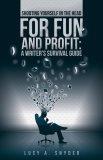
 "We do the same thing with politicians. There are many very good men and women working in politics. Very good men and women, who came to it because it was a vocation. And I'm fed up with the world being divided up into the good guys and the bad guys. It just doesn't work for me. It's not a question of black hats and white hats; that's the movies. The truth is we live in shades of gray. Everybody has their dark days and their dark secrets. Everybody. Without exception. And it just doesn't work to divide the world up in that simpleminded fashion. It's condescending to the human experience."
"We do the same thing with politicians. There are many very good men and women working in politics. Very good men and women, who came to it because it was a vocation. And I'm fed up with the world being divided up into the good guys and the bad guys. It just doesn't work for me. It's not a question of black hats and white hats; that's the movies. The truth is we live in shades of gray. Everybody has their dark days and their dark secrets. Everybody. Without exception. And it just doesn't work to divide the world up in that simpleminded fashion. It's condescending to the human experience."
IDW - Literary Adaptations
By Chris Ryall, IDW - The First Decade, April 2009
"Marvel had done Weaveworld horribly. I hated it and it was not Dan Chichester's fault. Dan was the one who brought it to Marvel and he was a man I liked a huge amount and that was one that got caught in the whole Marvel machine. All the promises that were made to me and Dan were not delivered 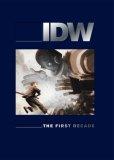 on. I was embarrassed and I just hated the fucking adaptation. It was one of my favourite books and people loved the book and I thought the comic adaptation was horrible. I did believe that comics were a place where the large, as you say, tomes can be done. These sort of Moby Dick-sized books, and I don't use that analogy lightly. It actually is Moby Dick that I constantly go back to when I'm looking for inspiration, when I'm looking for inspiration, when I'm looking for that little push of a voice of true genius speaking in layers saying, 'Barker, you're not a genius but you're good enough to have a try.' It's Melville I always go to, it's Moby Dick, in his own words, his 'homemade quilt of a book.' This is a guy who invented the novel as he went along, chapter by chapter. And I've always tried to do that, I've always tried to invent it the way the story wants it to be.
on. I was embarrassed and I just hated the fucking adaptation. It was one of my favourite books and people loved the book and I thought the comic adaptation was horrible. I did believe that comics were a place where the large, as you say, tomes can be done. These sort of Moby Dick-sized books, and I don't use that analogy lightly. It actually is Moby Dick that I constantly go back to when I'm looking for inspiration, when I'm looking for inspiration, when I'm looking for that little push of a voice of true genius speaking in layers saying, 'Barker, you're not a genius but you're good enough to have a try.' It's Melville I always go to, it's Moby Dick, in his own words, his 'homemade quilt of a book.' This is a guy who invented the novel as he went along, chapter by chapter. And I've always tried to do that, I've always tried to invent it the way the story wants it to be.
"I thought there's so much visual stuff in The Great and Secret Show and Everville and in Weaveworld, which I hope one day 'we' - that is you and I and IDW - will one day have a crack at again. I do believe there is a volume the size of the collected The Great and Secret Show which can be on people's shelves for the next 50 years if we do Weaveworld right. And I believe that's true of The Great and Secret Show."
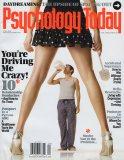
7 Questions
By Matthew Hutson, Psychology Today, April 2009
"The burning Twin Towers have appeared in front of us as living, vital images that say, 'Be afraid - be very afraid.' And how do you deal with that in your daily life? One of the ways you take hold of the things that frighten you is to grasp as you grasp the nettle, very tightly, so it doesn't sting. Horror is a debased form, but people are seeing movies and reading books in unprecedented numbers because it's speaking to our anxiety."
Panel Discussion
By [ ], Fangoria Weekend Of Horrors, Los Angeles, 18 April 2009 (note: reported, (i) by Todd Gilchrist as 'So What Do The Original Hellraiser Stars Think About A Remake?', SciFiWire.com, 19 April 2009, (ii) by Rob Vaux as 'Hellraiser Reunion', Mania.com, 20 April 2009)
"We're going to see a remake of Hellraiser, and I'm working to watch over that as a sort of Godfather figure. But when Bob Weinstein first approached me and said he was going to remake Hellraiser, I said, 'Why? Was the first one not good enough?' There are people out there - probably people in the audience here - with imaginations and monsters in their heads and scripts in their hands who should be given a chance over the same old, same old. I still prefer the 1933 King Kong. And don't get me wrong: I think Peter Jackson's a genius, and I don't use that word lightly... But I would prefer that he spent two years of his time making something we hadn't seen rather than remaking something we had. When a cinematic genius like Jackson comes along, or like [Guillermo] del Toro, they're only on the planet for a certain amount of time. You want people of that kind of calibre to be using their talents to create new things."
LA Times Festival Of Books
By Gina McIntyre, 25 April 2009 (note: reported as 'Inside The Wit And Work Of Clive Barker' by Michelle Maltais at http://latimesblogs.latimes.com)
[Re. The Third Book Of The Art] "The book is waiting in the wings... I wish I could clone myself sometimes... That book is huge and very important in me. It will never get lost in the shuffle."
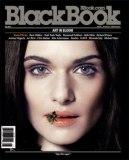
Clive Barker's Art Has Bite
By Ray Rogers, BlackBook, 28 April 2009 (note: full text online at www.blackbookmag.com)
"The things created in this town are antithetical to what I'm doing. They are corporate, glossy, made and judged by committees, and approved by group reviewers who are snatched off the streets of Westwood.
"This is my fuck-you to the world that I spent a lot of time making money in, no question. I have three houses on the property, I'm very happy about that, and the money for that all came from movies. But I didn't get freedom there. Look at this picture of this man I shot 10 days ago... This has as much power and theatre and beauty as I can ever want, plus nudity, thank God."
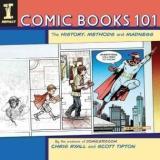
Comic Books 101
By Chris Ryall and Scott Tipton, Comic Books 101, May 2009
[On favourite comic storylines] "There's an embarrassment of riches... do I go to Doctor Strange by Steve Ditko? I think I must. This was my first introduction to the idea of comic books as art. This intro into the world of Ditko's Doctor Strange redefined the way we see comics. Ditko truly embraced the lessons of the surrealists. His style was the dominant thing that drew you to that book; his flavor was all over it. His art was best served by Doctor Strange's world - in his hands, magic became a plausible reality. No one drew with the delirious specificity of Ditko."
Midnight Writer
By Carnell, Fangoria, Issue 284, June 2009
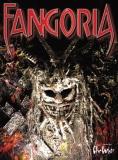
"I'm really glad about some of the things that have happened to me, and that I've moved my centre of interest from film to painting in the time between starting this series and beginning the final book [of The Art] - which won't be [finished] for another three or four years.
"I think my whole perception of who I am has evolved and - I'm going to use a very California word, so please forgive me - there has been a 'channelling' at work. You've seen my paintings. You know how I operate. You understand that this isn't an intellectual choice. I really don't know how else to explain it, except by using that horrible sort of Shirley MacLaine word! I don't literally think that's what's going on but I don't have a better explanation."
Dreams Vs. Nightmares
By Joe Berlinger, Dream The Impossible, Honda documentary series released 26 June 2009 (note: full documentary available on YouTube)
 "When my Dad passed away, I had a couple of bad nightmares. There was no violence, it was just nightmarish because it was my father and I wanted him to be alive... I came back from my father's funeral and I just thought, well, I'm going to paint what's in my head. It really did feel like this, like a dam had burst - my subconscious liberated my sorrow in the form of paintings.
"When my Dad passed away, I had a couple of bad nightmares. There was no violence, it was just nightmarish because it was my father and I wanted him to be alive... I came back from my father's funeral and I just thought, well, I'm going to paint what's in my head. It really did feel like this, like a dam had burst - my subconscious liberated my sorrow in the form of paintings.
"The waking dream is a kind of problem-solving, it is the way that you address the problem of why am I here? who am I? - all those big, big questions"
Meltdown Comics
An appearance at Meltdown Comics, Los Angeles on 1 July 2009 with Clive facilitating a Q&A with Grant Morrison (note: (i) full video online at www.meltcomics.com, (ii) reported by Erik Amaya for Comic Book Resources as Grant Morrison & Clive Barker Meltdown Hollywood at www.comicbookresources.com)
"I think the vibe which is put out by the industry isn't very attractive to gay writers. I think we are marginalized instantly. I remember going to Marvel and proposing a whole bunch of gay, not comics in which the only character was gay or the major character was gay, even a member of a team - this is way back now, this is fifteen years ago - I couldn't get a single fucking idea through, not one...
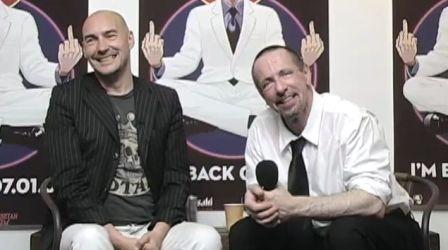

Grant Morrison with Clive Barker, Meltdown Comics, 1 July 2009
"I want to say just one other thing: comics are relentlessly violent and there is more blood in comics than there has been in a long, long time. I was able to pick up my pull... 30 comics; every single cover had blood on it. In that world, I'm not sure there's room for love, never mind gay love. I think the representations of love are for shit in mainstream comics right now and I don't whether it would be a point of pride frankly to actually be [integrated]... Love is a complicated and rich thing and so often it is used in comics as a means to destroy, as a method of destruction and revenge...
"I would love to pick up a comic, once in a while, that didn't have five pages of kicking the shit out of people as the solution to the narrative, right? It becomes torture upon torture: how much worse can the torture get? Have you got four eyes? Good, we'll put them all out. And I guess what I'm saying is we've got a, there's a larger issue than simply homosexual affection; there's the issue of affection. Yes? And until we address that in the larger drama - and movies have the same problem, I mean, you know they're not solving the problem any better, I don't think."
Still Raising Hell
By Calum Waddell, Judge Dredd Megazine, No 286, 21 July 2009
"Bringing Abarat to a close involves a lot of painting, so I think the reason that I am pushing to close the Abarat narrative is because when it is done I can then separate painting and writing again - but I have a deal to do five of them and, right now, there are only two! I just had my editor Joanna Cotler, from Cotler books, going through about four hundred paintings for Abarat 3 and, right after that, I will be moving onto Abarat 4. It really is non-stop but I have 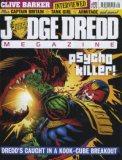 always said that these five books should be viewed as one long narrative; just in separate, self-contained parts. I can tell you that the third instalment is called Absolute Midnight and it is the darkest of the lot so far - in fact I think even the old Hellraiser mob will get a kick out of it. I initially aimed Abarat at younger readers but I have discovered that my adult audience has been taking great pleasure from them too.
always said that these five books should be viewed as one long narrative; just in separate, self-contained parts. I can tell you that the third instalment is called Absolute Midnight and it is the darkest of the lot so far - in fact I think even the old Hellraiser mob will get a kick out of it. I initially aimed Abarat at younger readers but I have discovered that my adult audience has been taking great pleasure from them too.
"Once I get Abarat totally finished I am planning to make the third and final part of The Art - it will be every bit as dark and erotic as the other two. I also plan to start work on the sequel to a novel I wrote called Galilee and I would love to do something else with Nightbreed. These things never leave my head but I have to put everything in some kind of order!
"I am also going to kill Pinhead, which I know a lot of fans are looking forward to... The man with the pins in his skull will be put to rest in a book I am paying close attention to called The Scarlet Gospels. I am saying goodbye to the 'hell' portion of my life forever. This is my farewell and goodnight. The reason it has not been finished is because the pressure has been on for me to get more Abarat out there - so I think it will be about three more years before The Scarlet Gospels is completed. It is a humongous book and it brings my career full circle in many ways...
"One of the reasons I wanted to take such time and care with The Scarlet Gospels is because I want to do right by it and by the mythology. I am killing off Pinhead in this book in such a way that it will be impossible for me - and I emphasise me - to ever resurrect him. What people do after I am gone is up to them. I don't have the movie rights over the material so I have no control. That is what it is. I will just get on, write my novel, and I think people will find it to be a satisfactory farewell."
FEARnet Panel
An appearance at the FEARnet Panel at San Diego Comic Con, 24 July 2009 (note: full video online at www.fearnet.com)
"Horror movies, if they're good, I think make people feel things they don't normally want to feel, right? I
mean, FEARnet is a perfect example, it's all about confrontation, you're being cornered by the narrative, the 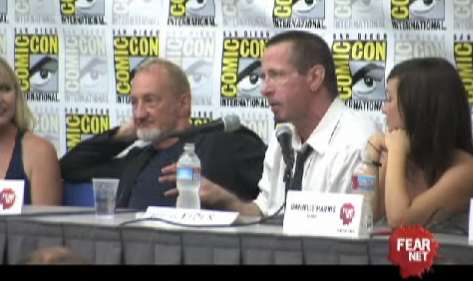 story takes you to a place where you don't want to go, right? You wouldn't seek a confrontation with the grave (or maybe I would...). It's a sadomasochistic relationship, in which they're all the masochists and we're the sadists... if we're doing our job right, we've got the whip.
story takes you to a place where you don't want to go, right? You wouldn't seek a confrontation with the grave (or maybe I would...). It's a sadomasochistic relationship, in which they're all the masochists and we're the sadists... if we're doing our job right, we've got the whip.
"Behind the joking, these stories are about the things we normally run away from in life and we seek the confrontation in a movie or in a piece of art because it's a safe place to face your fear. It's as Stephen King says, he takes you by the hand, takes you into a dark room and lets you feel the body beneath the sheet - and I think that's the essence of it: it's a confrontation with death."
Clive Barker Introduces New Dimension Of Horror To Comic Books
By Chris Ryall, IDW Publishing (full text at www.idwpublishing.com), 18 August 2009
"I have always felt that comics as a medium are still in a relatively early stage in their development - there are so many roads still to be taken. It is a medium which can afford to take risks, and we're taking them.
"This is, in more than one sense, a dream project. It is my first chance to co-produce with my best friend Robb Humphreys on a story that really touches our shared interests in the power of hallucinations and visions. It also brought me together with Chris Monfette, who will certainly be a part of my creative life for many years to come if I have any say in the matter. Add the art of Gabriel, the color of Jay and the amazingly mind-blowing talents of Ray Zone, this fulfills my dream of Seduth completely."
Only Connect
By Phil and Sarah Stokes, 19 August 2009 (note - full text here)
"I found that in Scarlet Gospels simply the presence of the angelic, or the benign, or the reassuring... was overwhelming the darkness; I didn't like that. I thought there's one easy fix which was to snatch away the thing I found the easiest, because I find writing from the dog's perspective incredibly easy and just a joy to do and, you know, I'm just going to take this element away. It has darkened The Scarlet Gospels considerably, because suddenly you don't have the light relief, you know, and it also gave me a much darker context in which to put this [Grail] story."
Nightbreed: Unearthing The Monsters
By Jessica Dwyer, HorrorHound Magazine, No 19, September / October 2009
"I know I shot scenes I adore that got cut and tossed to the floor. I know I shot Anne Bobby singing 'Johnny 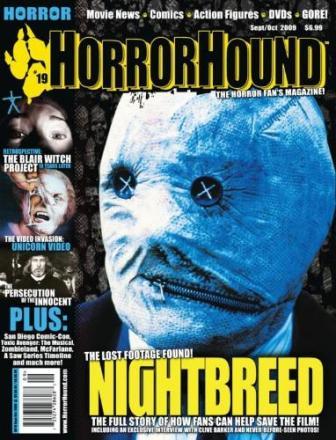 Get Angry,' a song that K.D.Lang covered, and Boone comes to the concert and Anne Bobby has an amazing voice. She is singing this song in a large bar, the kind of place where there is drinking and a show going on at the same time. And Boone stands amongst this crowd and watches her, and the song completely... perfectly talks about Boone, 'Johnny get angry, Johnny get mad, show me a side to you that you've never had.' And it's wonderful! And it's right there, and then without saying goodbye to her, he leaves and heads out the door and heads off to Midian, and it's a big moment. It's an emotional high point of the first act. Boone, because of his feelings, is unable to say goodbye."
Get Angry,' a song that K.D.Lang covered, and Boone comes to the concert and Anne Bobby has an amazing voice. She is singing this song in a large bar, the kind of place where there is drinking and a show going on at the same time. And Boone stands amongst this crowd and watches her, and the song completely... perfectly talks about Boone, 'Johnny get angry, Johnny get mad, show me a side to you that you've never had.' And it's wonderful! And it's right there, and then without saying goodbye to her, he leaves and heads out the door and heads off to Midian, and it's a big moment. It's an emotional high point of the first act. Boone, because of his feelings, is unable to say goodbye."
Clive Barker Goes 3-D For Surreal 'Seduth' Comic Book
By Caleb Goelner, MTV.com 17 September 2009 (note - full text online at MTV.com)
"Sometimes it does feel as though good ideas run out of steam, and I would prefer [as a reader] one comic, which was awesome, to [longer series] that were so-so... I'm a little kid in a candy store on a Wednesday, I like my comics dark and I like them stylish, I like them smart, but I can still read Archie comics when I need to."
Master Of the Macabre: A Portrait Of Edgar A Poe
By James Grainger, Rue Morgue, No 94, October 2009
"I bought a paperback copy of Tales of Mystery and Imagination with a lurid red and black cover for two 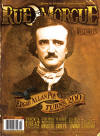 shillings, which is about twenty cents today. It was probably the first book I ever bought and it was a very big deal for me. In hindsight, it's even more significant because you can say that the first book that Clive Barker the author bought was a book by a man who is his spiritual godfather. I thought the work was boring and dull when I first read it, that's the honest truth. I found the prose stilted and the wording and language old-fashioned. I was already familiar by that time with M.R. James and Lord Dunsany from the local Liverpool library but I'd never read anything as 'wordy' as Poe. When I came back to him again soon after, I started to appreciate what he had to offer...
shillings, which is about twenty cents today. It was probably the first book I ever bought and it was a very big deal for me. In hindsight, it's even more significant because you can say that the first book that Clive Barker the author bought was a book by a man who is his spiritual godfather. I thought the work was boring and dull when I first read it, that's the honest truth. I found the prose stilted and the wording and language old-fashioned. I was already familiar by that time with M.R. James and Lord Dunsany from the local Liverpool library but I'd never read anything as 'wordy' as Poe. When I came back to him again soon after, I started to appreciate what he had to offer...
"The work I do is unthinkable without Poe. On the other hand, I would say that his work has not directly impacted my own work in any important ways. Poe is an artist who paints with a very limited and very dark palette, whereas I don't. I'm much closer in my aesthetic affections to Hieronymous Bosch, in that there's a lot of life and colour in my work. Even in the Books of Blood I was trying to do the reverse of what Poe did and open things up aesthetically."
Sitges Masterclass
Sitges 09, 9 October 2009 (note - full video online at www.scifiworld.es)
"I think artists are born wthout skins. We're born without as many skins as other people, yes? We are more vulnerable, yes? And living from day to day is more painful... I thought when I was a kiddy, a kid, that I was an odd little kid because I felt things deeply...
"I found as I grew older that whereas I'd expected to grow out of this, you know, to grow older and this would be something that would pass away, it didn't pass away. So I had to find a place to put these feelings, yes? And where does an artist, where does a boy who is 15, 16, living in a closet, unable to tell anybody that they're homosexual, tell anybody that they are having these strange dreams of monsters and all kinds of things - who could I tell? I didn't trust anybody. The only thing I trusted was the piece of paper - yeah? So the piece of paper became my father confessor, yeah? And so, what do 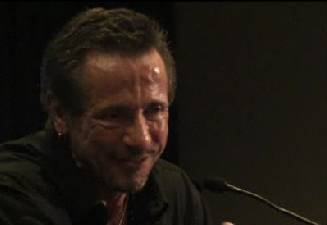 you do with your father confessor? You are honest. The thing you have to be is honest - there's no use lying to the piece of paper. There's no use telling an untruth to a piece of paper, you just say what is in your heart and something... emerges when you start to tell those honest confessions and over a period of years something appears which is yours and only yours.
you do with your father confessor? You are honest. The thing you have to be is honest - there's no use lying to the piece of paper. There's no use telling an untruth to a piece of paper, you just say what is in your heart and something... emerges when you start to tell those honest confessions and over a period of years something appears which is yours and only yours.
"I never, ever got up in the morning and thought, 'Boy, I want to be Stephen King.' I never got up in the morning and thought, 'Boy, I want to be Edgar Allan Poe,' all I wanted to do was be sane. And the only way I could be sane was by allowing these dark, complex thoughts a voice."
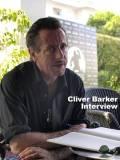
Interview
By Blake, Cinema Is Dope, Sitges, 16 October 2009 (note - full video online at www.cinemaisdope.com)
"We also have, with Mr Kitamura who made Midnight Meat Train, a number of anime projects, one of which will be, hopefully, In The Hills, The Cities which was one of the stories from The Books of Blood which didn't, could not conceivably be made as a live-action movie. And it was Mr Kitamura who came to us and said, 'Hey, how about this as an anime?' and I thought that was a sensational idea. So I think that anime, certainly as far as the West is concerned, anime has not been even remotely used, exploited as a genuine source of horror filmmaking. Obviously in Japan it has been, though the tongue has often been close to the cheek in Japanese anime. I think there's a real case for making really, really dark, spectacular horror movies in anime form because many of the stories - In The Hills, The Cities would certainly be an example - but there's a story called The Skins Of The Fathers, for example, which is a sort of Lovecraftian story from The Books of Blood which again requires huge monsters; sort of Cthulhu-sized monsters, which is inconceiveable as a live-action movie but would be wonderful as an anime."
Fright Club Presents An Interview With Clive Barker
By [ ], Fright Club, 16 October 2009 (note: full video available online in the members area at www.fright-club.co.uk)
"I'm not a great fan of horror-lite. I'm not a great fan of - I'm going to make myself some enemies by saying this, but - PG-13 horror movies. It seems to me to be a contradiction in terms - if you're going to make a horror movie, you're making it to be as intense and as, frankly, as distressing as you possibly can.
"When the Motion Picture Association of America come to me and say. 'Your movies are too intense, Mister Barker,' I say, 'Yeah... I mean, that's what they're supposed to be: they're horror movies. You know, if I was making Bambi, I'd simply kill an animal...' - as if that isn't intense enough. I'm making that joke but I'm only making it with my tongue in my cheek. What I'm saying is that intensity is in the eye of the  beholder. When I saw Bambi when I was, I don't know, six or whatever, the death of Bambi's mother made an incredible impression upon me, so I think one man's intensity is another man's humour. I know people who think that The Exorcist is so terrifying that they need to have a shower and then go to confess after they've watched it. I think it's a damn good movie but I don't feel that it represents some kind of reality about the world.
beholder. When I saw Bambi when I was, I don't know, six or whatever, the death of Bambi's mother made an incredible impression upon me, so I think one man's intensity is another man's humour. I know people who think that The Exorcist is so terrifying that they need to have a shower and then go to confess after they've watched it. I think it's a damn good movie but I don't feel that it represents some kind of reality about the world.
"In other words, there are ways to tell these stories that should be intense and should be powerful, without necessarily being exploitative - and we could get into a whole other argument about what 'exploitative' is. But I hope when people see Dread and when people see Midnight Meat Train and Book of Blood, they'll see that when the blood is spilled, oh boy, the blood is spilled, no question - particularly in Midnight Meat Train, I mean, Good God - but one of the most distressing things in all three movies, I think, actually happens with a leg of mutton on a plate in Dread..."
Clive Barker Interview: Dread, Book Of Blood, And The Need For No Holds Barred Horror
By Maggie Holland, Den Of Geek, 29 October 2009 (note - full text online at www.denofgeek.com)
"There are amazing talents out there who are still doing, I think, ground breaking work. Guillermo's work is challenging intellectually and emotionally. Pan's Labyrinth contains some of the most viscerally distressing material - the wound in the face thing. One of the things del Toro has brilliantly been able to do is synthesise the fantastic with something about the history of his country and his own autobiography. I don't think there's so much of that in American filmmaking, or indeed I have to say English filmmaking, and I wish there was more of it...
"Everybody has one thing. If you say Stephen King, probably people are going to say Carrie perhaps or maybe it's going to be The Stand. Obviously, if you say Tolkien, they're going to say The Lord Of The Rings and Tolkien did a lot of things beside Lord Of The Rings. Everybody has a breakthrough thing. If you said del Toro to most people they wouldn't give you Pan's Labyrinth, they'd say Hellboy. And I'm sure it would make Guillermo - proud as I know he is of those movies - I think he'd probably wish it were other.
"Frankly, I think it would be perverse to complain about the fact that I wish I was known for something different. If Hellraiser is what made people open the door and then they found Weaveworld or Seduth or whatever else, I'm fine with that. Whatever it takes."
Conversation At Meltdown Comics
Appearance at Meltdown Comics with Chris Monfette moderated by [ ], 29 October 2009
"If comics are ever to be anything more than the negligent entertainment that they've always been - and I really continue to believe that they deserve to be - then they have to attract writers of the intellectual calibre of Chris [Monfette]. They can't continue to be opportunistic in terms of... the endless resurrection of [characters]... Until you really take death seriously you can't take life seriously...
"The thing I think is that we have to be responsive; responsive but not passively responsive, you know, not sort of like, 'Oh, whatever you say, masters, whatever will make you lay down your money we will do,' because I think that's the way to Hell. And I think we've seen a lot of that in comics - the opportunism of the Eighties that almost destroyed a medium I adore, and I continue to adore...
"I'd really like to be back in the comics world because, God bless it, IDW gave us [Seduth] - look there it is, it's done, right? If this were a movie we might just have got in to see Bob Weinstein..."
AHWA Chats With Clive Barker
Online chat with the Australian Horror Writers association moderated by Felicity Dowker, 30 October 2009 (note - full text online at www.australianhorror.com/articles)
"I can certainly throw out some observations about the process of creating which may be of use. Firstly, it's the best and the worst of worlds, because the only fuel you have to make the fire blaze on the page / screen is the stuff of your own being. An artist consumes his or herself in the act of making art. I can feel that consumption even now, sitting here at my desk at the end of a working day. In order to generate the ideas that I have set on the page for the last 10 or 11 hours I have burned the fuel of my own history. This is, obviously a double-edged sword. In order to give, the artist must take from himself. That's the deal. And it's very important to me that the work I do is the best I can make it, because I know what is being burned up to create. As the villain of Sacrament says: 'living and dying, we feed the fire.'"
Meltcast Special Edition: Clive Barker
By Chris Rosa and Caleb Monroe, 22 November 2009 (note - interview took place 29 October 2009, full video online at www.meltcomics.com)
 "There is a scale of imagination available in comics that is simply not available in movies, however much money you spend. And there is an intelligence in comics that is not in movies at all and certainly is not in what we call the tent-pole pictures. If you're spending $250 million on a tent-pole picture for someone you can't have any subtext, you can't have profundity, you can't address the world as Seduth does, I think; it's a very nihilistic comic...
"There is a scale of imagination available in comics that is simply not available in movies, however much money you spend. And there is an intelligence in comics that is not in movies at all and certainly is not in what we call the tent-pole pictures. If you're spending $250 million on a tent-pole picture for someone you can't have any subtext, you can't have profundity, you can't address the world as Seduth does, I think; it's a very nihilistic comic...
"I just don't think any other medium allows you this scale of imaginative endeavour locked in with this richness of metaphysics, of philosophy, of worldview."





